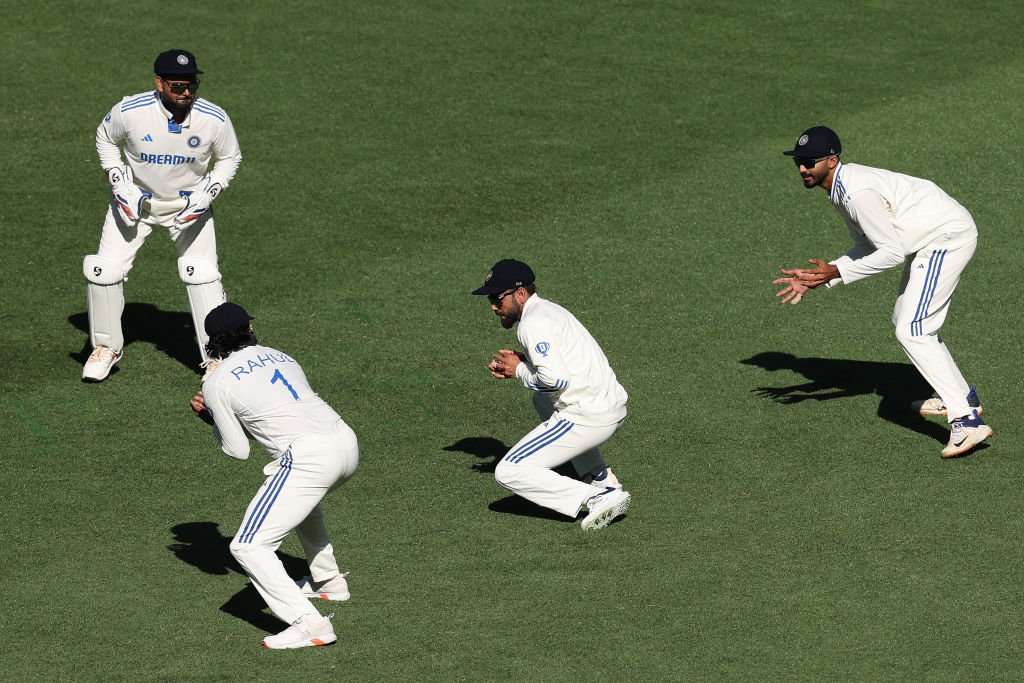
As India takes on Australia in the latest Border-Gavaskar Trophy, one of the most striking features of the ongoing Test series is Virat Kohli’s active involvement in the field, despite stepping down from the captaincy. His leadership qualities are not limited to his role as a batsman, as he continues to influence the game tactically with his decisions on field settings, motivating bowlers, and offering insights during key moments.
Kohli’s proactive approach has not gone unnoticed during this Test series, where his contributions extend beyond his impressive batting. As the Indian team’s former captain, Kohli is a key figure in the team’s overall strategy, and his presence in the field has become even more significant. He can be seen often standing beside bowlers, offering advice on the best field placements, suggesting strategies, and keeping up the energy levels of the team. His role, while not as formal as that of the captain, is crucial in maintaining India’s tactical discipline, especially against a strong Australian team.
The role of a captain goes beyond leading a team to victory; it also involves managing the emotions and mindset of players throughout the match. Kohli’s fiery and passionate attitude on the field has been a major asset in the ongoing series. As India’s batting stalwart, Kohli has faced criticism at various points in his career for his inconsistency. However, he has managed to regain his form, showing the world once again why he is one of the premier batsmen in international cricket. His on-field contribution is not just about runs but also about influencing the way the game is played, even in situations when he isn’t the one facing the ball.
His meticulous approach to fielding and setting positions is evident as he continues to shape the way India approaches the game. It’s common to see him adjusting fielders and offering strategic advice to the bowlers. While captaincy is an official role that requires the appointment of a designated individual, Kohli has always been a natural leader, and his involvement with the team, particularly with India’s bowlers, continues to be one of the major talking points of the series.
The shift from captaincy to playing purely as a batsman has allowed Kohli to focus more on his strengths while still contributing to the team’s overall success. His leadership qualities have not diminished but instead evolved into a more subtle and strategic presence on the field. The trust between him and current captain Rohit Sharma is evident in the way Kohli continues to influence proceedings, particularly when key moments arise.
In the first innings of the ongoing Test, Kohli’s expertise in setting fields helped India maintain pressure on the Australian batters. His understanding of the game’s nuances, such as when to tighten the field or when to push for more attacking placements, has been vital in keeping the Australian batsmen from building substantial partnerships. Kohli’s energy has not only helped India’s bowlers but has also impacted the team’s fielding unit. His leadership is constantly evident in the team’s body language, as his intensity acts as a spark, inspiring others around him to give their best.
Australia, known for its aggressive style of play, has had a tough time dealing with India’s formidable attack. Much of this success can be attributed to Kohli’s sharp cricketing mind. He has been an invaluable asset, helping to create pressure at crucial moments, forcing batsmen into uncomfortable positions, and keeping them on the defensive. Kohli’s sharpness on the field is enhanced by his ability to anticipate the next move. Whether it’s a slight shift in the field placements or a change in the bowler’s line of attack, his knowledge of the game allows India to remain ahead in the contest.
While his batting has been a standout feature in several matches, Kohli’s fielding and leadership skills ensure that he continues to contribute significantly to India’s performance. His input isn’t limited to just the cricketing side of things. As one of the senior players in the team, Kohli plays an important role in maintaining the morale of younger players. His influence on the pitch, especially in the testing moments of the game, provides the support and motivation needed for India to stay competitive, even in the toughest situations.
Even in the absence of the official captaincy title, Kohli’s role as an on-field leader remains central to the team’s efforts. His strategic thinking, quick decisions, and ability to inspire those around him cannot be understated. The ongoing Border-Gavaskar Trophy is proving to be not just a battle between bat and ball but a contest of tactical mastery, where Kohli’s contributions are making a difference both on and off the field. His evolving role in the team as a leader, without the pressures of formal captaincy, has showcased his undying commitment to Indian cricket and his continued importance in shaping the team’s future.
Looking ahead, as India aims for success in the Border-Gavaskar Trophy, Kohli’s involvement in shaping the team’s tactical game will remain indispensable. His leadership on the field is just as crucial as his performance with the bat, and his ability to guide India through tough situations remains a testament to his importance as a cricketer and a leader. As Kohli continues to contribute to India’s strategy and field placements, the team remains a force to be reckoned with in the international cricket arena.

